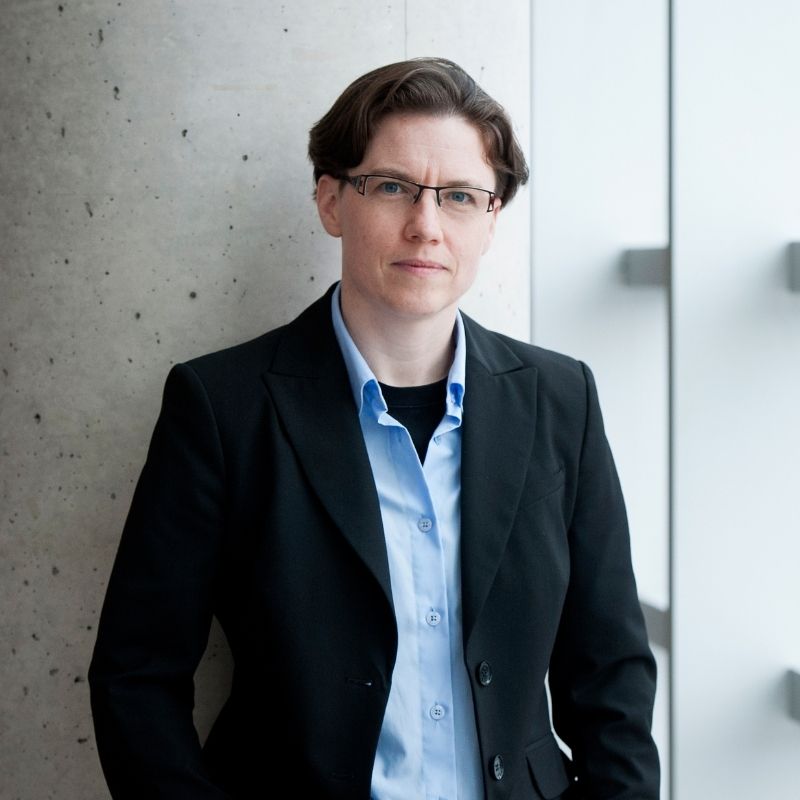Improving society’s trust in science
In March 2020, scientists stepped up to minimize the spread and devastation of COVID-19 by guiding public health measures and government responses. But the scientific community has struggled with the global spread of misinformation throughout the pandemic, which has contributed to mistrust in science. It’s just one example of a growing disconnect between science and society.
Telfer professor Sandra Schillo has received a Social Sciences and Humanities Research Council Partnership Development Grant for a research project titled “Beyond endless frontiers: Rethinking the social contract for science and innovation.” Working with the Institute on Governance and other university partners, she’ll re-examine Canada’s post-war scientific social contract and propose a new science and innovation policy framework.
A strained social contract
Since World War II, this implicit social contract has called on scientists to produce knowledge using public funds. In turn, society has benefitted considerably. For example, through health research, Canadians live longer now than 75 years ago.
However, society now demands more transparency and accountability from science and expects opportunities to participate in it. More than ever, the social contract is showing strain, with calls for science to be more inclusive and diverse, and Canada grappling with meaningful reconciliation with Indigenous people.
Science and engineering remain vital to seizing opportunities and addressing challenges, but our approaches to the governance of science and innovation, research funding and performance, and the way new knowledge and innovations are put to use must evolve in a “post-truth” / “post-trust” Canadian context.
Finding solutions
Using a multidisciplinary and multisectoral approach, Schillo and her team will explore the deficiencies of the post-war contract and identify solutions for today’s science, technology and innovation-driven society.
The research will focus on six themes:
- Mission-directed research
- Inclusive innovation
- Interdisciplinary, Indigenous and other ways of knowing
- Science communications, outreach and public engagement
- Skills and knowledge
- Trust, integrity, and science ethics
For Schillo, “This is an exciting opportunity to collaborate with leading Canadian and international researchers and policy developers to find opportunities for a path forward. I am grateful for the leadership by the Institute on Governance in assembling this amazing team.”
A new science-society relationship
A renewed science-society relationship will ensure the greatest possible compatibility between the new knowledge that scientists create and the public’s capacity to mobilize it for society’s long-term benefit.
For Jeff Kinder of the Institute on Governance, Telfer’s partner on the project, “Science needs to innovate not just for society, but with society. We look forward to working very closely with Dr. Schillo and the other project partners to co-develop elements of a new science policy, including new forms of co-governance.”
The project will stress going beyond publication in scientific journals. It will look at connections with policy makers, decision makers, managers, industry leaders and the public, and other knowledge systems, to co-create knowledge with practical relevance for a broad range of stakeholders.
This more inclusive approach will support a strong relationship between science and society based on trust, to meet Canada’s future needs. As Schillo says, “(I) look forward to engaging with stakeholders across Canada.”
By Rania Nasrallah-Massaad

Sandra Schillo focuses her research on improved methodologies relating to the measurement of innovation, entrepreneurship and their impact. Dr. Schillo has research and professional experience in the areas of science and technology, research and innovation management and entrepreneurship. Her professional work experience includes work completed for Industry Canada and many science based departments and agencies of the Canadian federal government.


